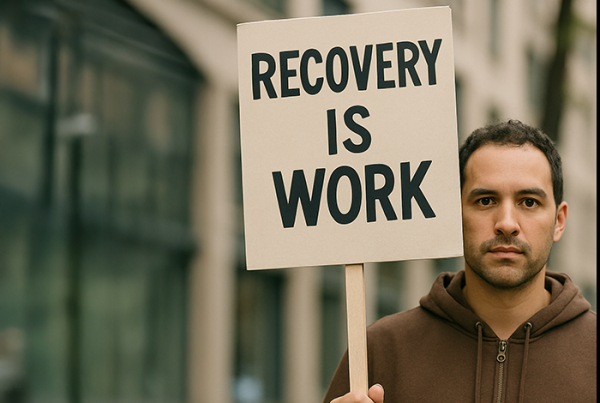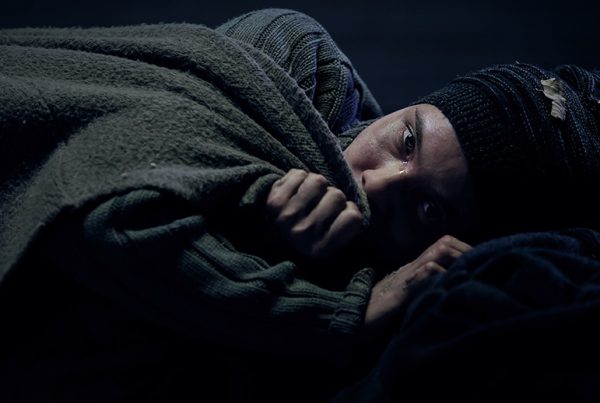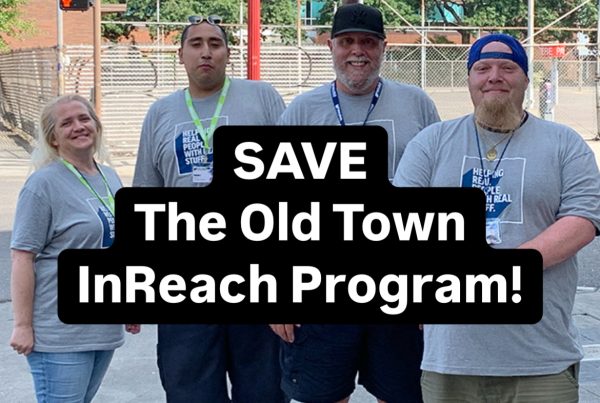Solving homelessness in Portland requires more than housing—supportive services like food, hygiene, and human connection are essential first steps toward stability and recovery.
As the Executive Director of Blanchet House, I see the realities of homelessness and housing insecurity in Portland every day. While we all agree that permanent housing solutions are essential, I must emphasize that basic supportive services like food, hygiene, medical care, and social connection are just as critical. These services are lifelines, offering immediate relief while helping people take the first steps toward stability and self-sufficiency.
The Reality of Homelessness in Portland
Portland’s homelessness crisis is driven by rising housing costs, economic instability, mental health challenges, and substance use disorders. While we must provide more affordable housing, the reality is that many individuals are not yet in a position to secure or maintain stable housing. Without easy access to food, clean clothing, showers, and medical care, they cannot begin to focus on rebuilding their lives.
At Blanchet House, we serve more than 1,000 free meals each day. For many of our guests, our cafe is their sole source of food for the day. It’s not just about food, though. It’s about dignity, safety, and survival. Providing necessities is the foundation upon which people can begin to address larger challenges.
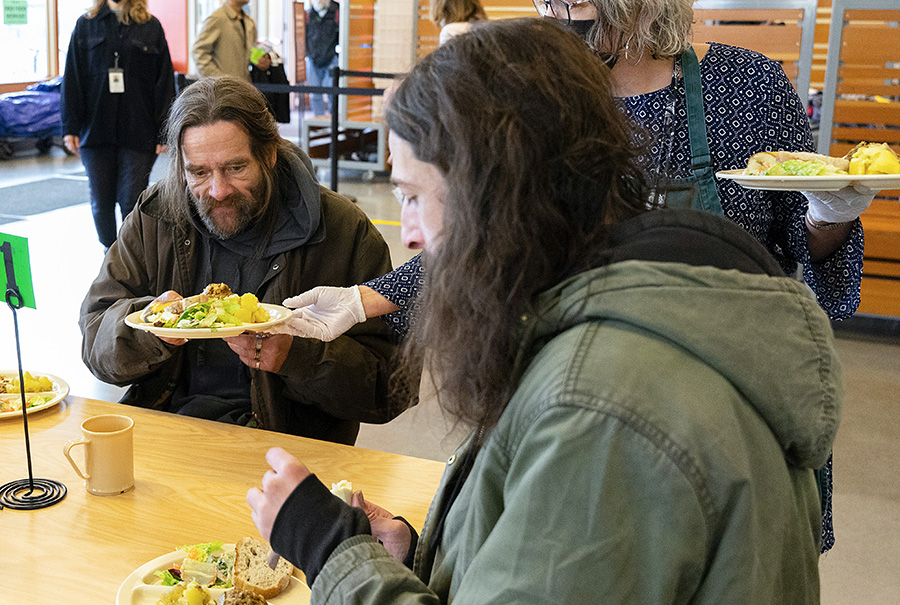
A volunteer serves a meal to guests in Blanchet House’s free cafe in downtown Portland, Oregon.
Supportive Services Help Prevent Homelessness
Organizations like Blanchet House are on the front lines, offering direct aid to those in need. Filling the gap in our social safety net. In addition to meals and supplies, Blanchet House employs highly trained staff who help people access shelter, housing, rehab, and more. Without our programs, individuals living unsheltered or at risk of eviction are left even more vulnerable to violence, illness, and despair.
Supportive services are also preventative. Blanchet support specialists can connect people to critical aid and care to mitigate a personal crisis. Without these interventions, more people will fall into chronic homelessness, requiring far more intensive and costly services later.
The Need for Continued and Expanded Support
Despite their proven effectiveness, many of the services we provide face funding uncertainties amid shifting policy priorities and budget cuts. In fact, Blanchet House will not receive funding for its food and supportive services in the forthcoming Multnomah County budget, a loss of more than $400,000. Even so, Blanchet House cannot afford to turn away from providing these essential programs. The community we serve cries out for us to do more, not less. Blanchet House, then, must continue to invest in supportive services. And since we cannot rely on public funding to help, we must call upon our generous community of donors and supporters.
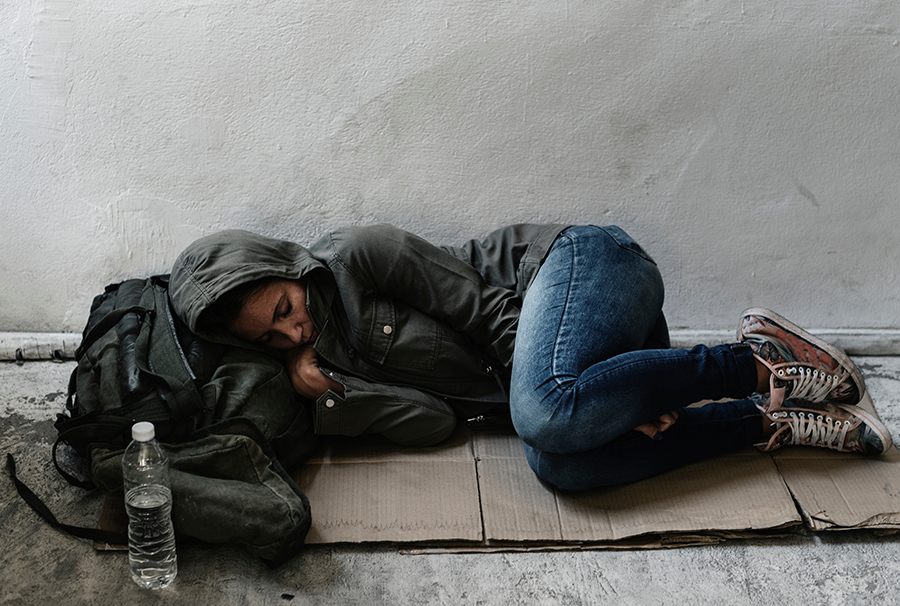
A woman lies on the ground. (stock photo)
A Complex Problem Requires Diverse Solutions
The homelessness crisis in Portland is complex, and no single solution will fix it overnight. However, continuing and expanding supportive services is a crucial piece to solving this puzzle. Ensuring that people have access to food, hygiene, and medical care can mean the difference between languishing on the street to being on a path toward stability. Supporting these essential services is not just an act of compassion—it is a necessary investment in the well-being and safety of our entire community.
Please donate to fill the gap left by county budget decisions so we can do more, not less.














